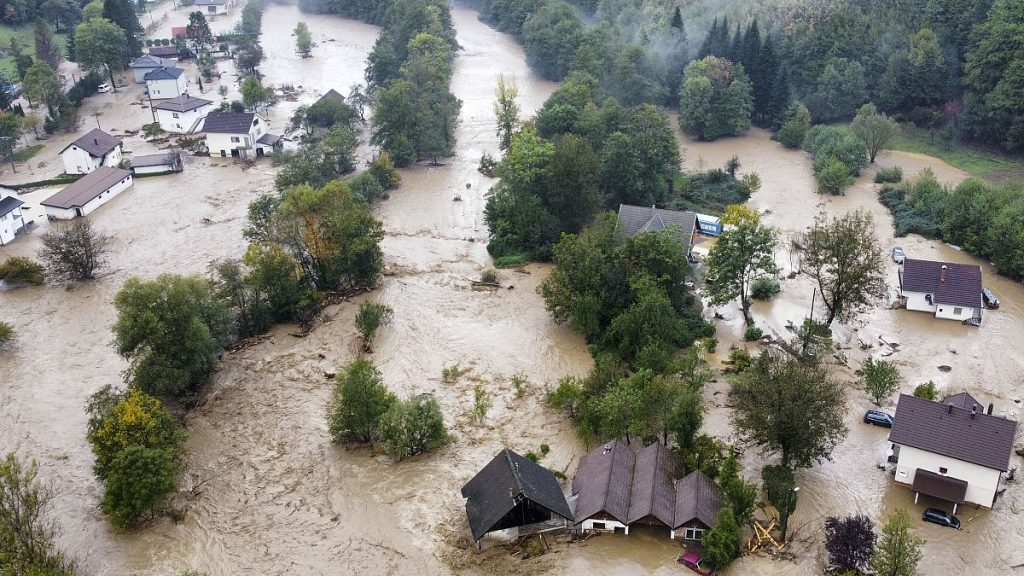Bosnia declared a state of emergency after severe rainstorms led to flooding and landslides, resulting in the deaths of at least 16 people. The flooding impacted towns and villages in central and southern regions of the country, with homes being inundated by surging waters as residents slept. Deputy Prime Minister Vojin Mijatović announced the allocation of €10 million for disaster relief efforts and the formation of a crisis team to manage the situation. Rescue teams in the south sought assistance from volunteers and the army to conduct search and rescue operations in the affected areas.
Residents in the town of Fojnica recounted their experiences during the floods, with one man describing how he was awakened by his dog barking and found water rapidly filling his home. The floods wreaked havoc, destroying property and leaving a trail of devastation in their wake. At least 14 fatalities were initially reported in Jablanica, with additional bodies being discovered in the aftermath. Defense Minister Zukan Helez confirmed the deployment of troops to assist in rescue operations and highlighted the urgency of locating and rescuing individuals trapped in their homes by landslides.
The logistical challenges posed by the flooding were evident, as power outages and disrupted communication networks hindered response efforts. Rescue teams in towns like Jablanica and Kiseljak faced difficulties in accessing affected areas due to road closures and impassable train lines. The situation was exacerbated by the lack of mobile phone signal, making coordination and communication among emergency services more difficult. The ongoing crisis prompted discussions about postponing upcoming municipal elections in the most severely affected regions to prioritize resources and focus on recovery efforts.
Neighboring countries in the region also grappled with the fallout from the severe weather conditions. Croatia experienced heavy rains and road closures, with the capital city of Zagreb bracing for potential flooding from the swollen Sava River. Similarly, Slovenia dealt with overflowing rivers and flooding in villages like Kot, warning of additional rain and potential landslides. Montenegro, located south of Bosnia, reported floods that isolated villages, submerged roads, and damaged homes. The widespread impact of the extreme weather underscored the need for coordinated response efforts and support across borders to address the growing crisis.
The swift response from local authorities and emergency services to the flooding crisis in Bosnia demonstrated the importance of preparedness and collaboration in managing natural disasters. The state of emergency declaration and allocation of funds for disaster relief reflected a commitment to mobilize resources and support those affected by the floods and landslides. The heroic efforts of rescue teams, volunteers, and the military in conducting search and rescue operations highlighted the resilience and determination of communities facing adversity. Despite the challenges posed by damaged infrastructure and disrupted communications, the united response to the crisis showcased the strength of solidarity in times of need.
As Bosnia continues to grapple with the aftermath of the flooding and landslides, the focus remains on addressing the immediate needs of those impacted and ensuring their safety and well-being. The scale of the destruction and loss of life serves as a stark reminder of the unpredictable nature of natural disasters and the importance of disaster preparedness and response mechanisms. With ongoing efforts to locate missing individuals, provide emergency assistance, and restore essential services, the community’s resilience and determination in the face of adversity are evident. Moving forward, coordination among local, regional, and international partners will be crucial in supporting recovery and rebuilding efforts in the affected areas to mitigate the long-term impact of the disaster and strengthen community resilience.


